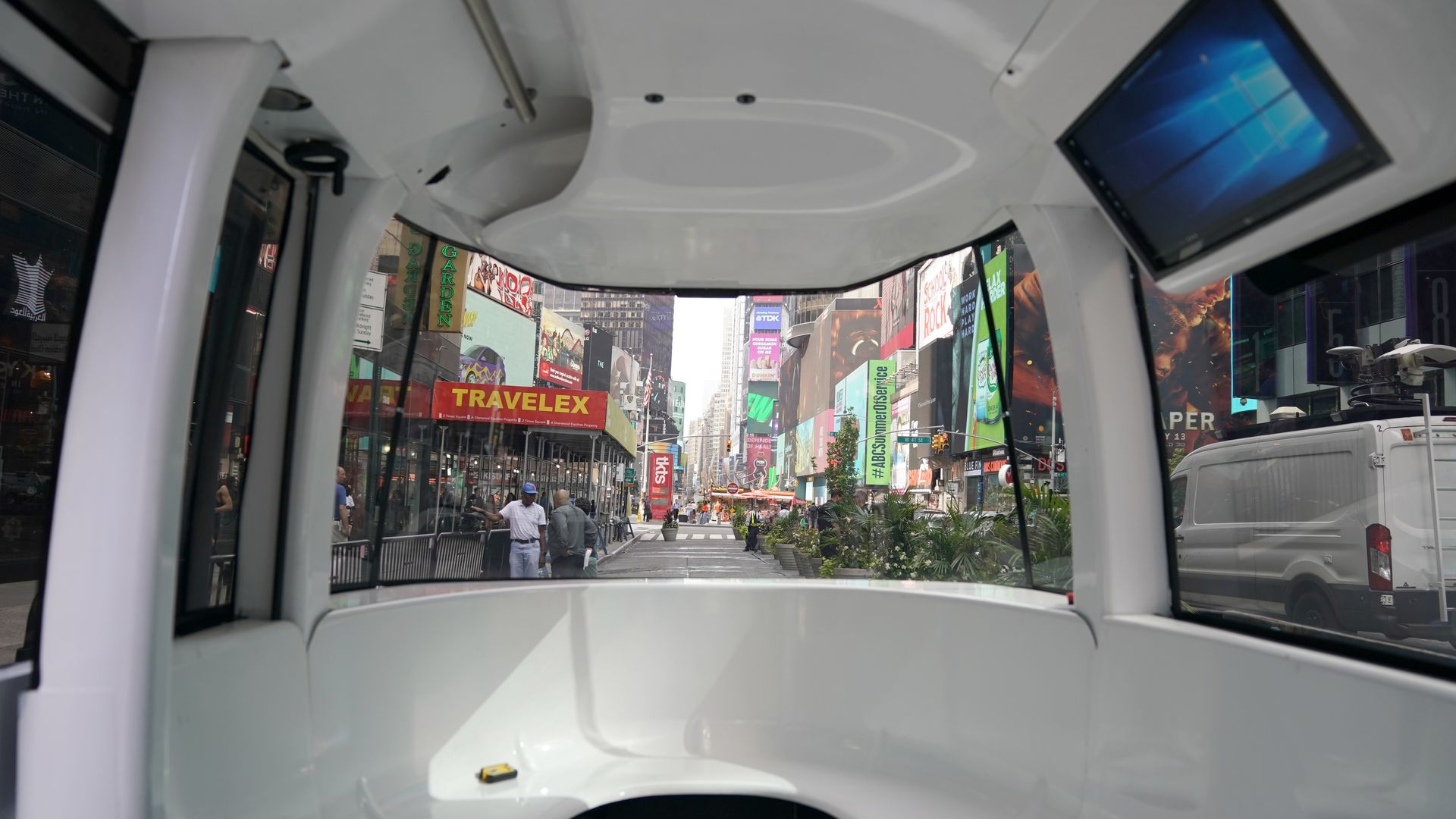Oct 4, 2018
Expert VoicesEmployers may face striking workers as AVs roll out
Add Axios as your preferred source to
see more of our stories on Google.

Interior view of a self-driving shuttle in New York City's Times Square. Photo: Timothy A. Clary/AFP via Getty Images
